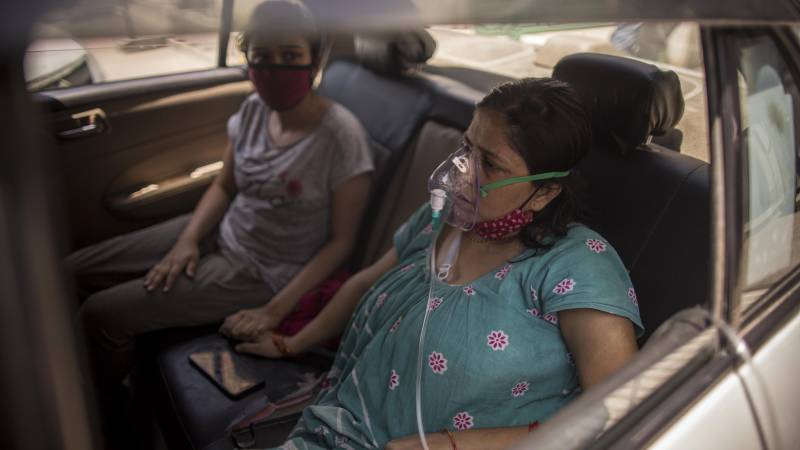For the fifth straight day, India set a global daily record of new coronavirus infections on Monday.
Social media has been filled with desperate pleas from those in India seeking hospital beds and oxygen concentrators. One journalist, Vinay Srivastava, even live-tweeted his declining oxygen levels until he died. And on Sunday, the National Security Council announced that the United States will now make more medical aid available to India in an effort to fight the spike in COVID-19 cases.
For Indians and Indian Americans in the Bay Area, what many are experiencing in daily life — the excitement of getting the vaccine and reopening businesses — contrasts starkly with the reality of family and friends sick and dying in New Delhi and other parts of the country.
“Every Indian you speak to will tell you we know somebody who has passed away in the last few days because they weren’t able to find a hospital to take them — or they weren’t able to get access to oxygen,” said Palo Alto resident Kanika Mediratta, who has family and friends in New Delhi.

